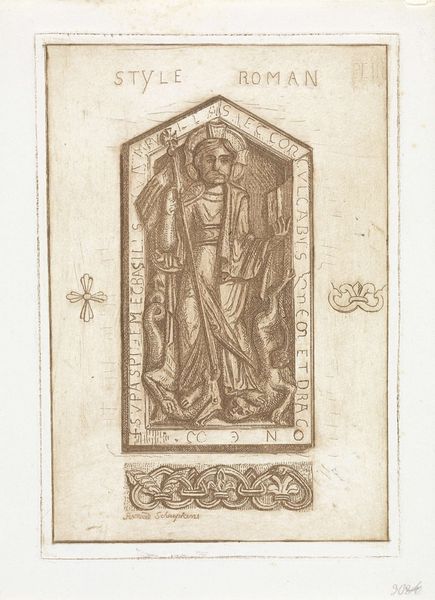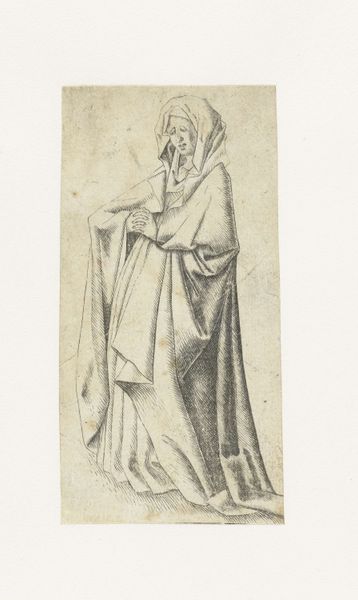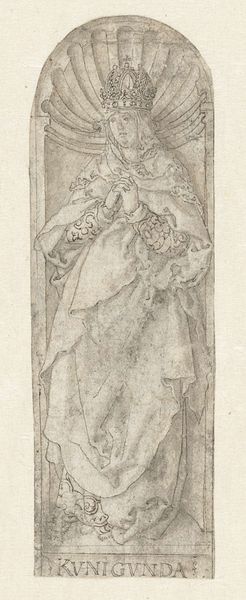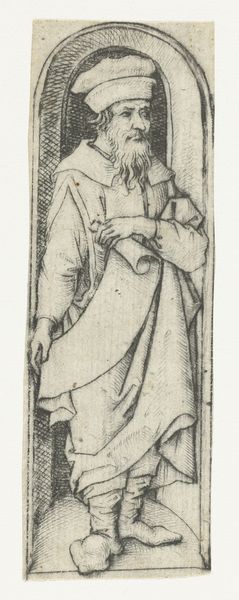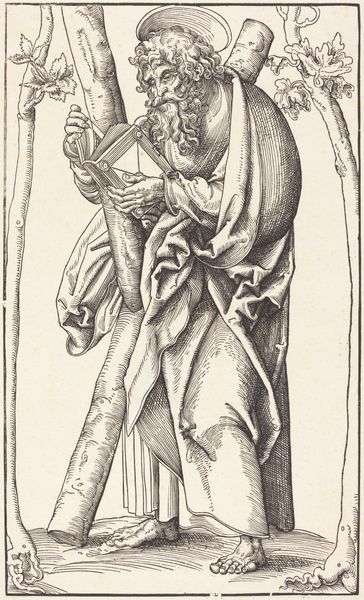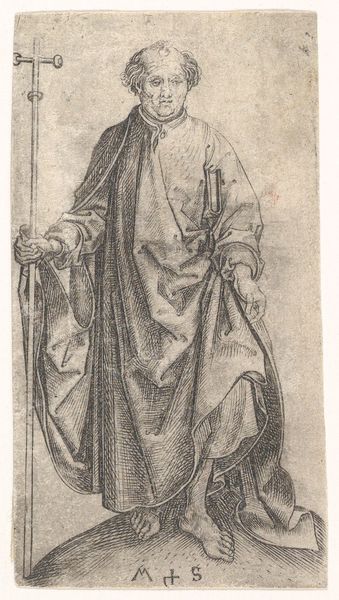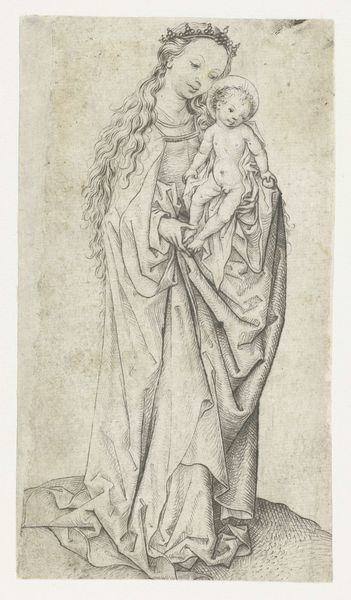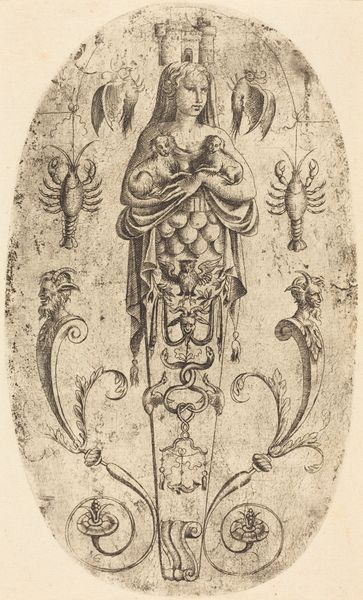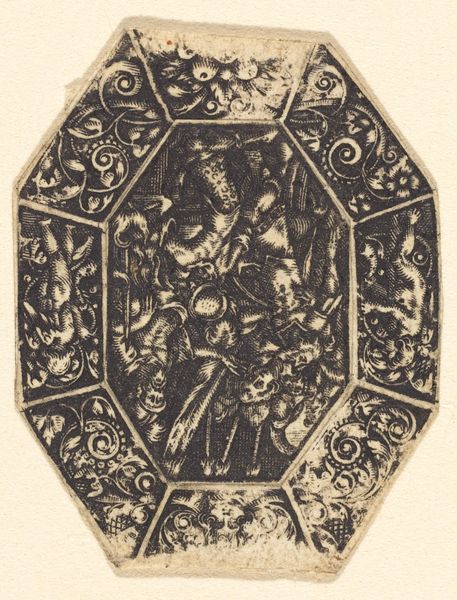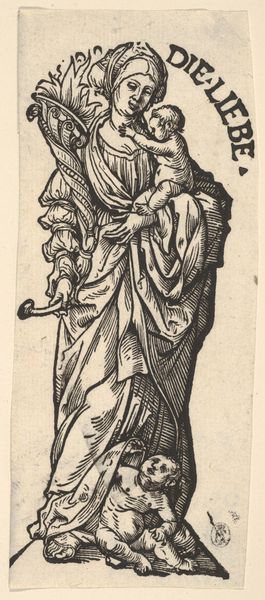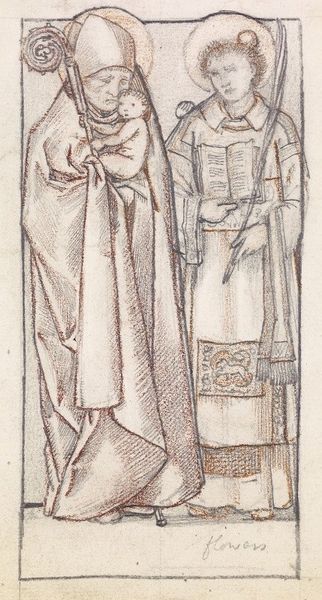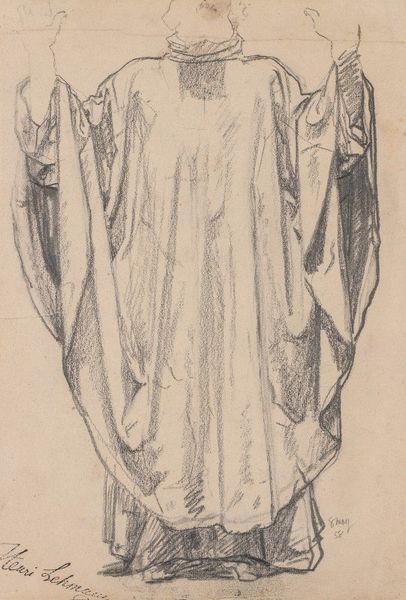
print, engraving
#
portrait
# print
#
figuration
#
form
#
line
#
history-painting
#
northern-renaissance
#
engraving
Dimensions: height 140 mm, width 54 mm
Copyright: Rijks Museum: Open Domain
Curator: Ah, here we have a fascinating piece: a print titled "German Emperor Henry II in a Niche" created by Heinrich Aldegrever sometime between 1512 and 1558. It’s an engraving, a testament to the Northern Renaissance interest in detailed figuration. What's your immediate take? Editor: He looks a bit like a cranky wizard. The line work is so fine, almost fussy, but the overall impression is powerful. Regal, of course, but also burdened, maybe even weary. Is that typical of Aldegrever's portraits? Curator: That's perceptive. Aldegrever was working within a tradition of representing rulers – power, authority. This image would have been circulated widely, reinforcing the idea of imperial grandeur, albeit on a miniature scale. It's fascinating how a relatively small print could project so much authority. Editor: I'm struck by the textures. The fur trim, the folds of his robes, even the metallic sheen on the orb he’s holding. It's all rendered with such meticulousness; he has a palpable presence, this ghostly emperor gazing out at us through the centuries. Curator: Exactly. Engravings allowed for incredible detail and, importantly, repeatability. This wasn’t a unique object for a wealthy patron, but a relatively accessible image contributing to a larger cultural narrative of German history and identity. Notice also how the niche frames him like a sculpted monument, emphasizing his permanence and historical weight. Editor: It’s like he’s been plucked from the wall of some ancient cathedral. I’m now seeing this interplay between the idealized and the very human, the ruler versus the old man holding the orb that I suspect he is finding quite heavy. Does that resonate with Aldegrever’s intentions, or am I reading too much into it? Curator: No, that’s a valid interpretation. These images always operate on multiple levels. Public pronouncements of power alongside more subtle character studies of individuals operating in these spheres of influence. The intent behind a work and its subsequent reception will never quite be aligned, that is for sure. Editor: So, despite its seeming simplicity, a layered narrative that only deepens with time, a relic from a time and place now far removed from ours, but still profoundly relevant. Curator: Indeed, a potent image negotiating power, history, and artistic ingenuity, captured with precision and enduring impact.
Comments
No comments
Be the first to comment and join the conversation on the ultimate creative platform.
